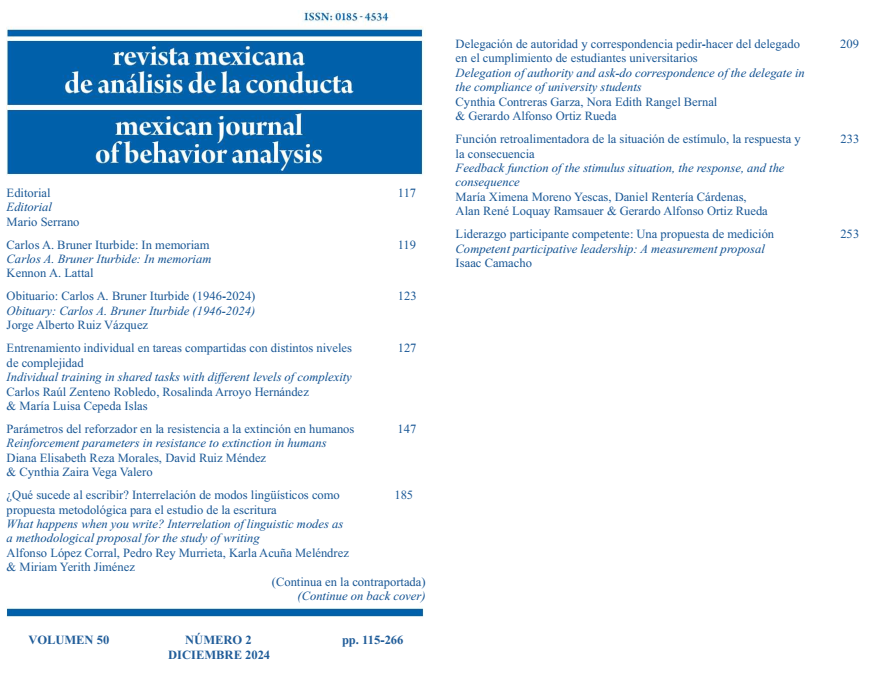Individual training in shared tasks with different levels of complexity
Main Article Content
Abstract
The functional levels at which individual contingencies are structured within shared ones modify behavioral interactions. This study aimed to identify the effects of individual training at different functional levels on solving shared tasks. Sixty students were organized into six groups, three of which received individual training through the Assembly Task (AT) at varying levels of complexity (contextual, supplementary, and selector), while the remaining groups received no training. Subsequently, in a shared test, all participants solved the AT in dyads. The results indicated that the higher the task complexity, the more trials were required to meet performance criteria. In shared situations, groups that received training had a higher number of correct trials. The conclusions suggest that prior exposure to tasks at different levels of complexity enhances performance in shared situations.
